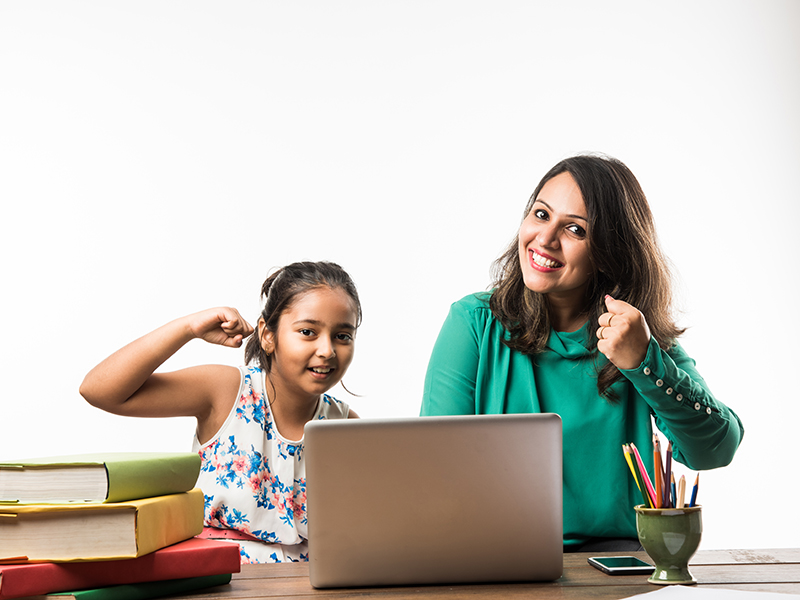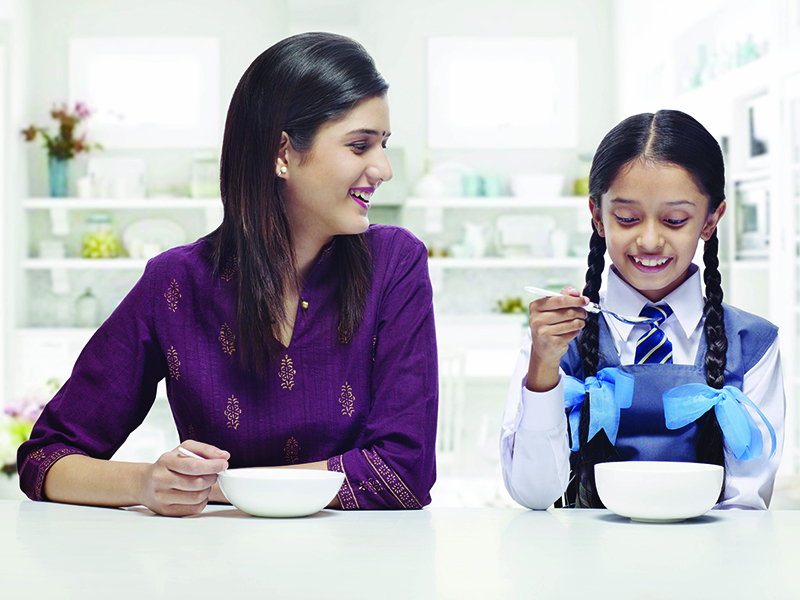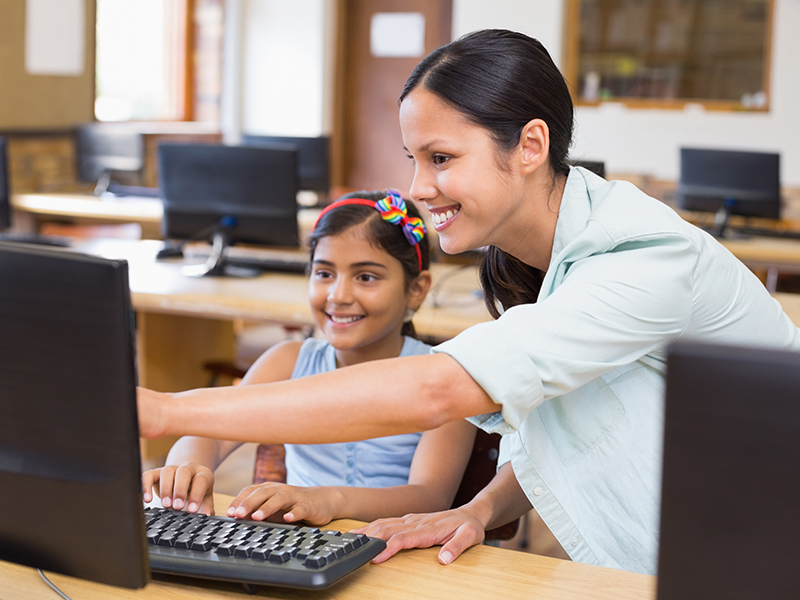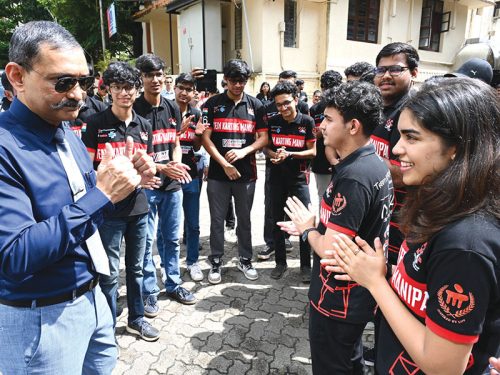New Academic Year 2024-25 Creating conducive home study environment
With the new academic year all set to begin this month, PW presents a comprehensive child development guide devised by experts to enable parents to better prepare children to achieve their academic and extra-curricular goals of the next year -Kiran Balimane & Cynthia John

The end of the summer vacation and start of the new academic year evokes mixed sentiments in parents and children — melancholy, relief, anticipation and excitement. It’s also a hectic time of planning and preparing to-do lists from buying school text and note books, arranging for children’s daily commute, signing them up for co-curricular and sports activities, to drawing up school lunch-box menus.
To this routine list, latter-day parents are adding home study timetables, daily routines and deliberating good home study habits in children. With a plethora of research studies indicating that children who follow structured study programmes experience less stress and anxiety, a rising number of educators and parenting coaches are advising parents and children to collaborate and co-plan school and home study schedules to make learning an enjoyable and fulfilling experience for children.
“Apart from shopping for school books and stationery, planning meal menus, the beginning of the new academic year is the best time for parents and children to draw up mindful home study routines and habits to supplement in-school learning. A structured academic plan for the whole year reduces children’s stress and anxiety, and contributes to improved learning efficiency,” says Lavanya Parashar, a Delhi-based special educator.
With the new academic year set to begin next month, PW presents a comprehensive child development guide devised by experts to enable parents to better prepare children to achieve their academic and extra-curricular goals of the next year.

Bhavna Singh
Build positivity
How you mentally prepare your child for the new academic year will set the tone for the next 12 months. Will school be an opportunity to learn enjoyably or a year of drudgery? Ghaziabad-based media anchor and IELTS exam trainer Bhavna Singh recommends strategies to build children’s positivity right from the start of the new academic year.
Speak positively about the new school year. During the last few days of the summer vacation, start speaking positively about the forthcoming school year. Get your child excited about going back to classes by recalling all the things she loves about school such as meeting friends again after the vacation, acquiring new knowledge, sharing hobbies and playing sports and games together.
Familiarise your child with her new school. If your child is starting school for the first time, it’s a good idea to familiarise her with the campus in advance. Visit the school and walk her around the premises, main building, classrooms, playgrounds and library. This will reduce her fear of the unknown and get her excited about her new school.
Introduce her to the class teacher and peers. To make your child feel more at ease in a new school or class, introduce her to her class teacher and classmates, beforehand. Many schools organise orientation tours. Ensure you sign up for them with your child. This will diminish her apprehensions.
Organise school supplies in advance. There’s much to do before school re-starts — purchase of uniforms, books, stationery, etc. It’s advisable not to put off these necessary tasks to the last week of the vacation. Start preparations early to reduce back-to-school related stress. Also get your child involved — take her shopping to choose her preferred supplies.
Prepare a new routine. A week before school starts, if not earlier, introduce a new home study routine. If children have been staying up late during the summer vacation, co-plan an early-to-bed and early-to-rise regimen after allotting a homework time slot. This will ensure their first week of school won’t be overwhelming and stressful.

Lavanya Sharma
Inculcate effective study habits
In the new post-Covid age of remote, online learning, a multiplying number of education professionals are veering around to the viewpoint that the traditional seven-eight-hour school day is out of date and overwhelming and stressful for children, says Lavanya Parashar (quoted earlier). She recommends a quasi-formal home study regimen to supplement children’s classroom learning to reduce stress and anxiety. “Effective home study facilitates comprehension and retention of classroom learning. It boosts children’s confidence, reduces stress, and improves exam scores while teaching discipline and responsibility. Revision of classroom lessons at home nurtures children’s reflection, problem-solving, and self-regulation skills — all of which are vital for success in contemporary workplaces,” says Parashar.
To develop effective home study habits, Parashar offers useful advice as under:
Prepare a daily study schedule. Encourage your child to follow a daily home study and homework routine and stick with it.
Provide a conducive environment. Jointly choose a quiet learning space at home, free of noise, where your child won’t be distracted.
Set learning goals. Help children break big lessons into small digestible portions and set timelines to achieve them. Also motivate her to set learning goals independently.
Time management skills. Teach your children to manage time wisely through good planning. Chart out a home study time-table together, and review it regularly.
Encourage conceptual learning. Memorisation by rote, still favoured by exam boards, doesn’t develop children’s thinking skills. Encourage learning through
comprehension. Initiate discussions, provide examples and play mind games to make home study more enjoyable and effective.
Balanced daily routine. A home study routine or time-table should also provide time for sports and co-curricular education – music, reading, dance etc. Moreover counsel children to exercise, eat wisely and get adequate sleep.
Note-taking and review. Encourage children to take notes in school and the classroom, and then review them at home during the study period.
Soliciting advice. Reiterate to your child that she should never hesitate to ask her teachers or parents for academic and other help and guidance. That’s what they are there for!
Inculcate neatness and order. Motivate children to maintain a neat and organised study space at home. This makes it easier to find books, stationery, etc, and reduces stress.
Celebrate progress. Recognise and reward children’s supplementary study efforts and self-reliance, and celebrate milestone achievements.

Dr Gita Mathai
Getting set for a healthy newacademic year
Dr. Gita Mathai, the well-known Vellore-based paediatrician and author of Staying Healthy in Modern India (2017), believes academic planning apart, parents should also plan to develop and maintain the physical health and emotional well-being of children in the new academic year. ParentsWorld invited her to suggest guidelines for parents to ensure a healthy and fulfilling new school year for their children.
Establish a sleep/waking routine. Most parents complain that waking and getting children to school on time is a herculean task, especially immediately after the end of the summer vacation. Therefore, to minimise stress, it’s important to establish a sleep/waking routine at least a week before the new school year begins. Wake children up at least one-two hours before the school bus is due to arrive. Budget for 15-20 minutes of aerobics or exercise to sharpen the intellect to boost in-school performance.
School-going children require eight to ten hours of deep sleep every night. Reducing sleeping hours to study causes more harm than good.
Provide a healthy breakfast. Never send children to school on empty stomachs. Breakfast is the first meal of the day after a long gap. Therefore it’s essential to kickstart the body’s metabolism. Please note that milk and biscuits are inadequate substitutes for a nutritious cooked breakfast. The traditional Indian breakfast of chapatti, puri, idli and dosa are excellent sources of non-refined carbohydrates which supply young children energy through the day. If preparing breakfast is onerous, opt for porridge made of broken wheat, rice and ragi with milk and supplemented with dry fruits and nuts. Chickpeas and soya chunks are also good alternatives. For non-vegetarians, adding an egg is an excellent breakfast meal providing 12 gm of protein.
Immunity check. Ensure your child’s immunisation card is certified by a paediatrician to confirm all vaccinations and boosters are up-to-date. This is important because school classrooms, playgrounds and play spaces are not without germs and bacteria that can cause jaundice, typhoid, chicken pox, measles, and mumps — all preventable with timely immunisation.
Unimmunised children lose 14-21 school days annually because of illness with 10 percent of them requiring hospitalisation.

Dental and vision health. It’s common for children to develop dental caries which hinders mastication. Vision defects and subtle hearing loss can also adversely affect academic performance. Poor eyesight uncorrected by prescription glasses may result in children experiencing difficulty in reading alphabets, numbers and making notes from the blackboard. Organise dental, eye and ear check-ups for children before the start of school every year.
Choose the right school bag. Heavy school bags are widely — and rightly — criticised. Therefore, choose a school bag that’s comfortable and doesn’t strain your child’s back. Backpacks with padded straps that fit well on both shoulders with adjustable shoulder straps to match your child’s height are best. A tip: the weight of a school bag should not be greater than 10 percent of a child’s weight. Heavier bags can result in permanently faulty posture and backaches.
Ensure healthy lunch and snacks. Healthy, energy-boosting nutrition is an essential precondition of good learning outcomes. The school lunch should comprise rice or chapattis with fast food such as instant noodles an absolute no-no. For snacks, provide home-cooked delicacies such as carrot halwa, peanut barfi, kesari, bhajis, samosas and potato bondas. Carbohydrate intensive, salted, preservatives-laden packaged snacks are not advisable. For children who rush to tuition classes straight after school, a banana is an ideal snack before the next grind begins. Water-borne diseases are rife. Therefore, all children must carry their own water bottles to school.
School uniforms/shoes/socks. It’s also important to choose school uniforms mindfully. Uniform material should be at least 60 percent cotton to suit India’s hot/humid climate. Children’s undergarments and socks should be of pure cotton and washed daily. Sweaty air-dried socks worn again can cause fungal feet infections. Shoes should be of natural material such as leather or cloth. Damaged, torn, worn out, ill-fitting shoes could irreparably damage growing feet.
 Restrict television viewing. Television and cell phone video reels watching for school-going children should be restricted to 30 minutes per day and two hours on Saturdays. Watching two-three hours of television/video reels daily during school days adversely affects children’s eyesight and attention span capabilities.
Restrict television viewing. Television and cell phone video reels watching for school-going children should be restricted to 30 minutes per day and two hours on Saturdays. Watching two-three hours of television/video reels daily during school days adversely affects children’s eyesight and attention span capabilities.
Parents must get involved in school activities. Attending PTA (parent-teacher association) meetings is important because it prevents bullying, ragging and victimisation of children. Ditto volunteering to help with annual days, plays and sports days which acquaints parents with school politics. Most important, parents should have realistic expectations of their children. It’s important to bear in mind that children have differing talents and multiple intelligences. It’s an important parental obligation to discover and nurture their children’s special talents and capabilities and provide a supporting and enabling home environment to help children derive the full benefit of formal education.
Six suggestions for improving children’s concentration
 During their first term in school, children tend to be anxious and are often unable to concentrate on tasks or assignments. Six suggestions to boost children’s powers of concentration, prolong attention spans and beat academic stress.
During their first term in school, children tend to be anxious and are often unable to concentrate on tasks or assignments. Six suggestions to boost children’s powers of concentration, prolong attention spans and beat academic stress.
- A shot of Nature is always a great way to improve the attention span of children. Several studies suggest that visiting green spaces weekly/ fortnightly boosts enquiry, creativity and productivity.
- Problem-solving exercises, crosswords, puzzles, improve concentration. Contrary to expert opinion, video games — played within time limits — boost the visual and spatial skills of children. Playing indoor games such as memory, scrabble and chess should be encouraged.
- Balanced diets supplemented with field games and sports greatly contribute to developing children’s learning. For instance, if a child skips breakfast, she is unlikely to perform optimally in school. Nuts, avocados and eggs boost brain power. Walnuts, for instance, boost cognitive functions, including memory and focus.
- Yoga enhances energy levels and brain function. Researchers have found that yoga and meditation practice for 20 minutes daily dramatically boosts practitioners’ attention spans.
- A power nap for 20 minutes or half an hour after school prepares children to get more out of homework.
- During study/homework hour, short breaks of 5-10 minutes are advisable to improve concentration and learning retention.
Academic planning apps
These 5 apps aid parents to plan children’s academic/study routines. They enable users to set lesson reminders, take notes, set academic goals, and measure progress.
- SchoolPlanner
- EverNote
- StudyBunny
- Notion
- EasyStudy

















Add comment